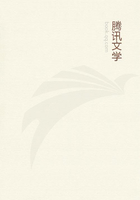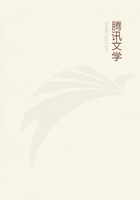For as soon as these pure concepts of reason (the transcendental ideas) are given, they could hardly, except they be held innate, be found anywhere else, than in the same activity of reason, which, so far as it regards mere form, constitutes the logical element of the syllogisms of reason; but, so far as it represents judgments of the understanding with respect to the one or to the other form a priori, constitutes transcendental concepts of pure reason. The formal distinction of syllogisms renders their division into categorical, hypothetical, and disjunctive necessary. The concepts of reason founded on them contained therefore, first, the idea of the complete subject (the substantial); secondly, the idea of the complete series of conditions; thirdly, the determination of all concepts in the idea of a complete complex of that which is possible. 26 The first idea is psychological, the second cosmological, the third theological, and, as all three give occasion to Dialectics, yet each in its own way, the division of the whole Dialects of pure reason into its Paralogism, its Antinomy, and its Ideal, was arranged accordingly. Through this deduction we may feel assured that all the claims of pure reason are completely represented, and that none can be wanting; because the faculty of reason itself, whence they all take their origin, is thereby completely surveyed. Sect. 44. In these general considerations it is also remarkable that the ideas of reason are unlike the categories, of no service to the use of our understanding in experience, but quite dispensable, and become even an impediment to the maxims of a rational cognition of nature. Yet in another aspect still to be determined they are necessary. Whether the soul is or is not a simple substance, is of no consequence to us in the explanation of its phenomena. For we cannot render the notion of a simple being intelligible by any possible experience that is sensuous or concrete. The notion is therefore quite void as regards all hoped-for insight into the cause of phenomena, and cannot at all serve as a principle of the explanation of that which internal or external experience supplies. So the cosmological ideas of the beginning of the world or of its eternity (a parte ante) cannot be of any greater service to us for the explanation of any event in the world itself. And finally we must, according to a right maxim of the philosophy of nature, refrain from all explanations of the design of nature, drawn from the will of a Supreme Being; because this would not be natural philosophy, but an acknowledgment that we have come to the end of it. The use of these ideas, therefore, is quite different from that of those categories by which (and by the principles built upon which) experience itself first becomes possible. But our laborious analytics of the understanding would be superfluous if we had nothing else in view than the mere cognition Of nature as it can be given in experience; for reason does its work, both in mathematics and in the science of nature, quite safely and well without any of this subtle deduction. Therefore our Critique of the Understanding combines with the ideas of pure reason for a purpose which lies beyond the empirical use of the understanding; but this we have above declared to be in this aspect totally inadmissible, and without any object or meaning. Yet there must be a harmony between that of the nature of reason and that of the understanding, and the former must contribute to the perfection of the latter, and cannot possibly upset it. The solution of this question is as follows: Pure reason does not in its ideas point to particular objects, which lie beyond the field of experience, but only requires completeness of the use of the understanding in the system of experience. But this completeness can be a completeness of principles only, not of intuitions [i.e., concrete atsights or Anschauung en] and of objects. In order however to represent the ideas definitely, reason conceives them after the fashion of the cognition of an object. The cognition is as far as these rules are concerned completely determined, but the object is only an idea invented for the purpose of bringing the cognition of the understanding as near as possible to the completeness represented by that idea. Prefatory Remark to the Dialectics of Pure Reason. Sect. 45. We have above shown in Sect. Sect. 33 and 34 that the purity of the categories from all admixture of sensuous determinations may mislead reason into extending their use, quite beyond all experience, to things in themselves; though as these categories themselves find no intuition which can give them meaning or sense in concrete, they, as mere logical functions, can represent a thing in general, but not give by themselves alone a determinate concept of anything. Such hyperbolical objects are distinguished by the appellation of Noumena, or pure beings of the understanding (or better, beings of thought), such as, for example, "substance," but conceived without permanence in time, or "cause," but not acting in time, etc. Here predicates, that only serve to make the conformity-to-law of experience possible, are applied to these concepts, and yet they are deprived of all the conditions of intuition, on which alone experience is possible, and so these concepts lose all significance. There is no danger, however, of the understanding spontaneously making an excursion so very wantonly beyond its own bounds into the field of the mere creatures of thought, without being impelled by foreign laws. But when reason, which cannot be fully satisfied with any empirical use of the rules of the understanding, as being always conditioned, requires a completion of this chain of conditions, then the understanding is forced out of its sphere. And then it partly represents objects of experience in a series so extended that no experience can grasp, partly even (with a view to complete the series) it seeks entirely beyond it noumena, to which it can attach that chain, and so, having at last escaped from the conditions of experience, make its attitude as it were final. These are then the transcendental ideas, which, though according to the true but hidden ends of the natural determination of our reason, they may aim not at extravagant concepts, but at an unbounded extension of their empirical use, yet seduce the understanding by an unavoidable illusion to a transcendent use, which, though deceitful, cannot be restrained within the bounds of experience by any resolution, but only by scientific instruction and with much difficulty. !. The Psychological Idea. 27 Sect. 46. People have long since observed, that in all substances the proper subject, that which remains after all the accidents (as predicates) are abstracted, consequently that which forms the substance of things remains unknown, and various complaints have been made concerning these limits to our knowledge. But it will be well to consider that the human understanding is not to be blamed for its inability to know the substance of things, that is, to determine it by itself, but rather for requiring to know it which is a mere idea definitely as though it were a given object. Pure reason requires us to seek for every predicate of a thing its proper subject, and for this subject, which is itself necessarily nothing but a predicate, its subject, and so on indefinitely (or as far as we can reach). But hence it follows, that we must not hold anything, at which we can arrive, to be an ultimate subject, and that substance itself never can be thought by our understanding, however deep we may penetrate, even if all nature were unveiled to us. For the specific nature of our understanding consists in thinking everything discursively, that is, representing it by concepts, and so by mere predicates, to which therefore the absolute subject must always be wanting. Hence all the real properties, by which we know bodies, are mere accidents, not excepting impenetrability, which we can only represent to ourselves as the effect of a power of which the subject is unknown to us. Now we appear to have this substance in the consciousness of ourselves (in the thinking subject), and indeed in an immediate intuition; for all the predicates of an internal sense refer to the ego, as a subject, and I cannot conceive myself as the predicate of any other subject. Hence completeness in the reference of the given concepts as predicates to a subject -- not merely an idea, but an object-that is, the absolute subject itself, seems to be given in experience. But this expectation is disappointed. For the ego is not a concept, 28 but only the indication of the object of the internal sense, so far as we know it by no further predicate. Consequently it cannot be in itself a predicate of any other thing; but just as little can it be a determinate concept of an absolute subject, but is, as in all other cases, only the reference of the internal phenomena to their unknown subject. Yet this idea (which serves very well, as a regulative principle, totally to destroy all materialistic explanations of the internal phenomena of the soul) occasions by a very natural misunderstanding a very specious argument, which, from this supposed cognition of the substance of our thinking being, infers its nature, so far as the knowledge of it falls quite without the complex of experience. Sect. 47. But though we may call this thinking self (the soul) substance, as being the ultimate subject of thinking which cannot be further represented as the predicate of another thing; it remains quite empty and without significance, if permanence- the quality which renders the concept of substances in experience fruitful-cannot be proved of it. But permanence can never be proved of the concept of a substance, as a thing in itself, but for the purposes of experience only. This is sufficiently shown by the first Analogy of Experience, 29 and whoever will not yield to this proof may try for himself whether he can succeed in proving, from the concept of a subject which does not exist itself as the predicate of another thing, that its existence is thoroughly permanent, and that it cannot either in itself or by any natural cause original or be annihilated.
同类推荐
热门推荐
追妻无门:女boss不好惹
青涩蜕变,如今她是能独当一面的女boss,爱了冷泽聿七年,也同样花了七年时间去忘记他。以为是陌路,他突然向他表白,扬言要娶她,她只当他是脑子抽风,他的殷勤她也全都无视。他帮她查她父母的死因,赶走身边情敌,解释当初拒绝她的告别,和故意对她冷漠都是无奈之举。突然爆出她父母的死居然和冷家有丝毫联系,还莫名跳出个公爵未婚夫,扬言要与她履行婚约。峰回路转,破镜还能重圆吗? PS:我又开新文了,每逢假期必书荒,新文《有你的世界遇到爱》,喜欢我的文的朋友可以来看看,这是重生类现言,对这个题材感兴趣的一定要收藏起来。转动人脉:构建超级成功人脉网的73个技巧
在好莱坞,流行一句话:一个人能否成功,不在于你知道什么,而是在于你认识谁。斯坦福研究中心曾经发表一份调查报告,结论指出:一个人赚的钱,12.5%来自知识,87.5%来自关系。人脉决定了财富。本书以人脉为核心,详尽地阐述了提升人脉的方法与技巧,另外,还精心选取了大量创造人脉、维护人脉、提升人脉的经典案例。衷心希望您在翻开本书的同时,就找到开启您人脉存折的密码,也找到一把开启您人生幸福与成功的金钥匙。追妻无门:女boss不好惹
青涩蜕变,如今她是能独当一面的女boss,爱了冷泽聿七年,也同样花了七年时间去忘记他。以为是陌路,他突然向他表白,扬言要娶她,她只当他是脑子抽风,他的殷勤她也全都无视。他帮她查她父母的死因,赶走身边情敌,解释当初拒绝她的告别,和故意对她冷漠都是无奈之举。突然爆出她父母的死居然和冷家有丝毫联系,还莫名跳出个公爵未婚夫,扬言要与她履行婚约。峰回路转,破镜还能重圆吗? PS:我又开新文了,每逢假期必书荒,新文《有你的世界遇到爱》,喜欢我的文的朋友可以来看看,这是重生类现言,对这个题材感兴趣的一定要收藏起来。半路抢亲:夫骑白马来
出嫁当日,新郎跟员外千金私奔!原以为会灰头土脸地给送回去,谁知半路杀出个程咬金!只见某人骑坐高头大马,眉梢一挑。“连人带轿,抬回去!跟我拜堂!”待时光应答,春意正浓,恰君自骑马来。

